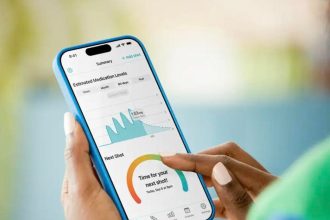Although it seems an unlikely place to study a psychedelic drug, the state of Kentucky could be the first to fund research into ibogaine. At the end of the month, a summit in La Grange will offer Kentuckians a chance to learn about it and other potential “breakthrough” treatments for opioid use disorder.
State Commission Considers Funding Psychedelic Research
In 2022, Kentucky Attorney General Daniel Cameron reached settlements of more than $842 million with opioid producers for their role in exacerbating the opioid epidemic. The Bluegrass state has been hit particularly hard by the crisis, where more than 9,000 people have died of an overdose since 2018.
The state established the Kentucky Opioid Abatement Advisory Commission (KYOAAC) to allocate the funds, of which $42 million is being considered to finance clinical trials of ibogaine, a powerful—and potentially dangerous—psychedelic drug derived from the root of a West African shrub. Studies have shown that a single treatment of ibogaine can reduce opioid withdrawal symptoms and lead to complete cessation of opioid use. However, without proper screening and medical oversight, ibogaine comes with risks and has in some cases resulted in cardiovascular events such as heart attacks, and even death.
While the KYOAAC announced in May that it would explore the idea of allocating $42 million over six years to finance clinical trials of ibogaine, it has yet to decide if it will proceed with funding the study of the Schedule I psychedelic. (A vote was originally scheduled for mid-November but has been postponed.) This fall, the commission held two public hearings, listening to testimony from policymakers, psychologists, military veterans, scientists, and others familiar with its effects and risks.
Sharing Ibogaine’s Therapeutic Potential
While politicians and public health experts who attended the hearings may be more familiar with ibogaine today than they were six months ago, Ben Greenzweig says most Kentuckians are still largely unaware of the psychedelic and its potential to interrupt opioid use disorder, which, according to a study published in Drug and Alcohol Dependence, affected an estimated 5.9 percent of the state’s population in 2019.
“We recognize that there is likely a large learning gap among the people of Appalachia and the surrounding communities to understand what ibogaine is, what it can do, and how it can possibly help them or a loved one,” says Greenzweig, the founder and CEO of Momentum Events — the same organization that helped produce the MAPS Psychedelic Science conference held in Denver this past June.
“We want to provide free and low-cost education for the community, so they can begin understanding what ibogaine is, how it works, how it can help, and who it can help by sharing scientific, clinical, policy, and patient perspectives.”
On November 30, policymakers, researchers, practitioners patients, and advocates will come together for the Kentucky Summit on Exploring Breakthrough Therapeutic Potential for Opioid Use Disorder to discuss the impacts of opioid use disorder and delve into innovative therapeutic approaches to combat the ongoing crisis, with a focus on ibogaine.
The summit promises an opportunity to learn about potential treatments, ongoing research, and policy strategies to improve the lives of those suffering from opioid use disorder. Presenters at the upcoming summit will include longtime ibogaine researcher Dr. Deborah Mash, Stanford Brain Stimulation Lab professor Dr. Nolan Williams, veteran and author Doc Askins, MAPS founder Rick Doblin, Reason for Hope founder Brett Waters, former NFL player Kerry Rhodes, and Atai Life Sciences co-founder Srinivas Rao, among others. The event will be held in La Grange for the town’s proximity to major cities including Louisville, Lexington, Frankfort, and Cincinnati.
While therapists, addiction counsellors, and others caring for those suffering from opioid use disorder are encouraged to attend, Greenzweig hopes to see a strong representation of attendees from the veterans’ community, survivors of sexual assault, and other people who may be dealing with trauma and mental health issues.
Hundreds of Scholarships Up for Grabs
Events of this nature are often criticized for having expensive ticket prices and other barriers to entry, but Greenzweig hopes the Kentucky summit will be one of many Momentum events offering community members an opportunity to attend at a reasonable price point (tickets range in price for the one-day summit from $99 to $149). In addition, more than 100 scholarships have been made available by events sponsors Atai Life Sciences and Austin and Gabriela Hearst.
“We have a very low barrier to entry to receive a scholarship, which is predominantly an affirmation of an economic need,” says Greenzweig.
Psychedelic Therapy ‘Not a Magic Bullet’
With less than two weeks to go until the event, Greenzweig hopes those in attendance will leave with a more holistic understanding of psychedelic treatments like ibogaine.
“I hope individuals who have a closed mind to this therapy have the door opened just a crack to want to learn more. It’s important to know that psychedelic therapy is not for everyone. It’s not a magic bullet. It’s a tool that can be part of someone’s healing journey,” he says.
“For those who are already open, I hope they come away with a greater understanding of how these medicines can work, why they should be accessible, and how to use them responsibly.”
Read the full article here





